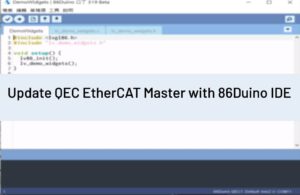[Variable Scope & Qualifiers]
説明
The const keyword stands for constant. It is a variable qualifier that modifies the behavior of the variable, making a variable “read-only“. This means that the variable can be used just as any other variable of its type, but its value cannot be changed. You will get a compiler error if you try to assign a value to a const variable.
Constants defined with the const keyword obey the rules of variable scoping that govern other variables. This, and the pitfalls of using #define, makes the const keyword a superior method for defining constants and is preferred over using #define.
Example Code
const float pi = 3.14; float x; // .... x = pi * 2; // it's fine to use consts in math pi = 7; // illegal - you can't write to (modify) a constant
Tip
#define または const
You can use either const または #define for creating numeric or string constants. For arrays, you will need to use const. In general const is preferred over #define for defining constants.
See also
Language Reference Home
86Duino のリファレンスのテキストは Arduino レファレンス を編集したもので、 Creative Commons Attribution-ShareAlike 3.0 License下でライセンスされています。リファレンス内のコードサンプルはパブリックドメインとして公開されています。



